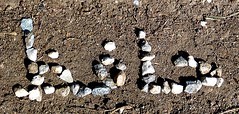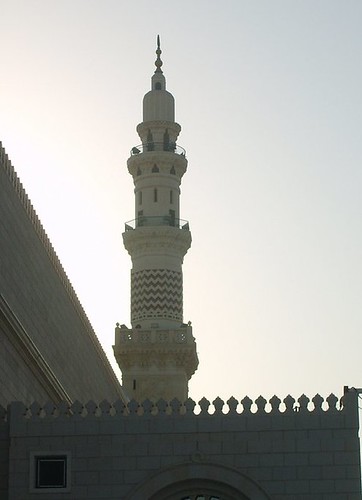Every sense that a person possesses is a river that flows into the heart and affects its contents. The fasting of the elite encompasses not just abstinence from food, drink and intimate relations, but also cautiousness in keeping every sense and limb free from sin.
The Fast of the Eye
Everything that the eye glances upon affects the heart. Even what we envision in our sleep is affected by the images that the eye sees while awake. Sometimes, these images flash before us in our prayers or other acts of worship. Therefore, it is extremely important to be vigilant about what we expose our eyes to.
Prophet Muhammad (peace be upon him) has said,
“A glance is an arrow from the arrows of Ibli. Whoever leaves it out of Godly fear, then Allah- Exalted be He- will grant him faith in which he will taste its sweetness in his heart.” [Al-Hakim]
This hadith teaches us that the sinful glance is one of the ways Iblis pierces our heart and our connection with Allah (subhanahu wa ta’ala).Scholars have said that once a person glances on something haram, Iblis uses the effects of that glance to destroy his worship.
Conversely, the reward for the person abstaining from sinful glances is a taste of the blessing of sweetness of faith. Once a person tastes this special form of faith, he will want to experience it again and again, and will not be willing to forsake it.
The Fast of the Tongue
Our Prophet (peace be upon him) has said,
“Fasting is a shield with which one protects oneself; so let not him (who fasts) utter immodest (or foul) speech, nor let him act in an ignorant manner; and if a man quarrels with him or abuses him, he should say, ‘I am fasting, I am fasting’.” [Bukhari]
The first response of a person to provocation by saying, “I am fasting”, is a reminder to himself that he is in a sacred and lofty state of fasting for the pleasure of Allah, the Most Great. The second time he says, “I am fasting”, it is a reminder to the other person that he will not respond to his provocation in a similar manner because he is fasting.
Lying, backbiting, slandering, lewd speech, breaking promises, vain speech and excessive joking are all sins of the tongue. Allah will test the fasting person with this temptation, and in many other ways. This is because the reward we seek from Him – that of everlasting abode in Paradise – is so valuable, it wont be achieved without great and sincere effort on the part of the seeker.
The Fast of the Ears
The Prophet (peace be upon him) has said,
“All that is sinful to utter is sinful to listen to.” [Al-Tabarani]
Therefore, the ears must also be guarded from hearing anything impermissible.
The Fast of the Limbs and Guarding the Food that Enters the Stomach
Every limb of a person’s body must be kept away from sin. The hands and feet must be kept away from reprehensible deeds. The stomach must be guarded against having questionable food enter it at the time of breaking the fast. It is meaningless to fast and abstain from lawful food, only to break the fast with food that is unlawful or questionable in its source.
Here, when the scholars refer to unlawfulness or uncertainty in food, they are referring to aspects of the food beyond its method of slaughter (for meat) or other such apparent qualities. They are referring to the effect of the food we eat on our soul. Our food is the source of our energy- when the source is corrupt, the actions that stem from that source will also be corrupt. It is important for us to know the source of our food, and that it is not brought to us by means which are unfair, or exploitative in nature, either to the people involved in producing it (e.g. farmers) or the actual food itself (e.g. animals that are slaughtered for meat).
My teacher shared a couple of examples to illustrate this vigilance in food by the righteous…
In one incident, a young boy who used to serve Abu Bakr as-Siddiq (may Allah be pleased with him) went out to get some milk for him. When he returned with the milk and offered it to Abu Bakr who was very hungry, he drank it without remembering to ask the boy where he got it from. Upon recalling this oversight, he asked the boy about the source of the milk. The boy said that the milk came from goats that grazed on a field that was from property that was unlawfully usurped from orphans. Upon hearing this, Abu Bakr, forced himself to expel the milk he had just drank, out of fear of nourishing his body on something unlawful.
The Prophet (peace be upon him) has said,
” Any flesh that is grown on something that is impermissible, the fire has more right upon it.”
My teacher also shared observations from the elderly people in the community where she studied as a student of knowledge. They would say that all the problems in their city amongst the people started happening after they started consuming food that originated from outside the city. Until 50 years ago, all the food available in the city was grown there by the local people. They would remember and praise Allah as they planted every seed in the ground. They would remember and praise Allah when they harvested the crop that came from that seed. And they would remember and praise Allah when they prepared and consumed the food that was produced from that crop. Without doubt, such blessed food would surely produce a blessed affect in the person consuming it.
May Allah allow us to experience, and taste the sweetness of, this level of consciousness in everything we see, say, hear, do and eat. Ameen.
[Content based on notes taken in Ramadan preparation classes.]






Thoughts From Our Readers